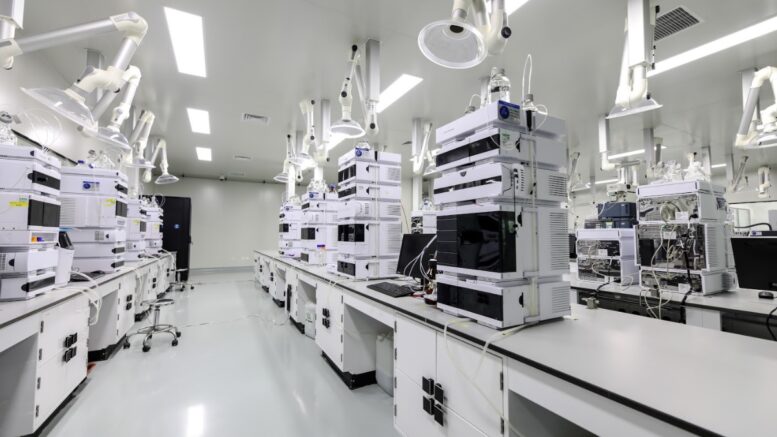Clinical trial supplies are the most vital part of drug development and of transporting treatments from the labs to the patients. Like everything else though, COVID-19 has not left this segment of the global industries undisturbed too. Massive changes have occurred in the pharmaceuticals and biologics industries too and clinical trial supplies have faced heavy disruption.
Let’s take a look at how COVID-19 has impacted clinical trial supplies:
Impact of COVID-19 on Clinical Trial Supplies
- Tension mounting in stakeholders concerning their payments, especially including the sponsors/CROS
- Patient recruitments have become increasingly difficult
- Terminations and interruptions in clinical trials
- Difficulties complying with regulations of local governments relating to the pandemic
- Managing the patients falling prey to COVID-19
- Addressing the increases in protocol deviations
Currently, the concerned authorities have issued specific recommendations to provide harmonization and clarity for the processes. Owing to the intensely instable situation due to the pandemic, there has been quite an increase in the regulatory flexibility and while this will not be a permanent thing, it will continue to remain until the pandemic slows down.
The pandemic has caused a surge in using digital technologies in clinical trial supplies too, including virtual inspections and meeting report requirements. Till the global health crises does not trickle down and the supply chain industry can resume usual protocol for the processes, there are some strategic product supply solutions one can consider.

1. Pause or Potential Delay
At this point in time, a trial must only proceed as planned if its potential participants have a safe means of completing protocol procedures. If this can happen, only then can they contribute to essential analysis. If there are no guaranteed safe protocol procedures, then it is best to delay the enrollment initiation of trials.
At least, it is necessary to withhold initiations till the pandemic eases its burdens on the normal setting. Once the study team is confident that it can manage the risks of the deadly virus adequately, they may reinitiate the enrollment.
This approach is vital more importantly if the concurrent virus is directly or indirectly affecting the study treatment and its outcomes.
2. Collect whatever Possible
Now is the time to make the best of technology, even if it is for clinical trial supplies. Professionals can use a variety of ways of collecting date, such as contacting patients over the phone, arranging local clinic or lab visits, initiating telemedicine visits and others.
They must prioritize data collection and for this, flexibility is essential. Whether they have to directly ship the clinical trial supplies to the patients at their residences or complete a study visit using video or phone calling, data collection must continue.
Sponsors must also proactively assess their future and current protocols for identifying opportunities of visit conversion. They must look for means of incorporating input directly from the sites and patients over the days.
The individuals must also look for opportune times for conducting evaluations and identifying windows for flexible analysis. If this includes operating outside the usual protocol standards, then so be it.
It is important to note that the FDA has issues a guidance wherein it states that due to the pressures of COVID-19, missing data is unavoidable. However, several experts have proactively designed strategies that facilitate data documentation through virtual, remote or off-schedule windows and one must adapt to them quickly.
3. Careful Administration
Individuals now need to pay special attention to administering study drugs to reduce the risks that the pandemic has brought forth. Therefore, study drugs should be at par with the clinical achievable levels that a non-pandemic setting would have.
This means that the professionals involved must enable study medications that patients can take at home, organize a team of healthcare workers who can visit patients in their residence while wearing the P.P.E gear and enable delivery of injections etc.
Trialists must consider methods that facilitate the data collection in a more wholesome during the pandemic, so that they can increase the validity and efficacy of assessments in addition to safety.

4. Documentation
If there is a need to revise the language for SAPs (Statistical Analysis Plans), data management or data processes plans, then the authorities must not hesitate from loosening their operational directives. This is one way they can ensure that the maximum number of patients will participate in the analysis despite the ongoing pandemic.
5. Quality Checklist
Sites and sponsors need to run quality checklists proactively, specifically tailored to overlook the COVID-19 impacted areas. Here is how they must design the checklist:
- Include modifications to whatever quality plan they have currently
- Design a quality plan post-COVID, to include in the checklist
- Address the actions they need to take considering the current pandemic
- Continuous risks they need to consider and mitigate
Similarly, the professionals must also prepare a communications strategy that addresses internal teams and leaderships, study participants, vendors, external partners, regulatory agencies and sites etc. The strategy should also include details of messaging content, frequency and timing.
6. Consider Alternatives
The individuals involved in clinical trial supplies must also be accommodating to adjust the study budget as needed to account for the pandemic-related protocols that sites have to take on. They must consider alternative and cooperate with sites in producing a patient-centric methodology for moving the study forward.
Sites should also be flexible in the following regards:
- Allowing sponsors to ship oral drugs directly to patients
- If it’s in their patients’ best interest, they must facilitate deviations from protocols
- Take note of which patients prefer virtual visits, participation and support from caregivers, family and friends at home etc.
- Accommodate the rightful fears of patients in deciding whether or not they wish to travel to visit sites.
- Adopt flexible conversion tactics, including telemedicine and others.
- Identify the critical testing and data requirements to push to keep the study in progress.
Final Thoughts
All the industries worldwide have undergone massive changes and disruption in operations since COVID-19 set in. Clinical trial supplies have suffered a significant impact too and authorities are currently calling for safe and alternative measures for progressing with studies and trial supplies.
